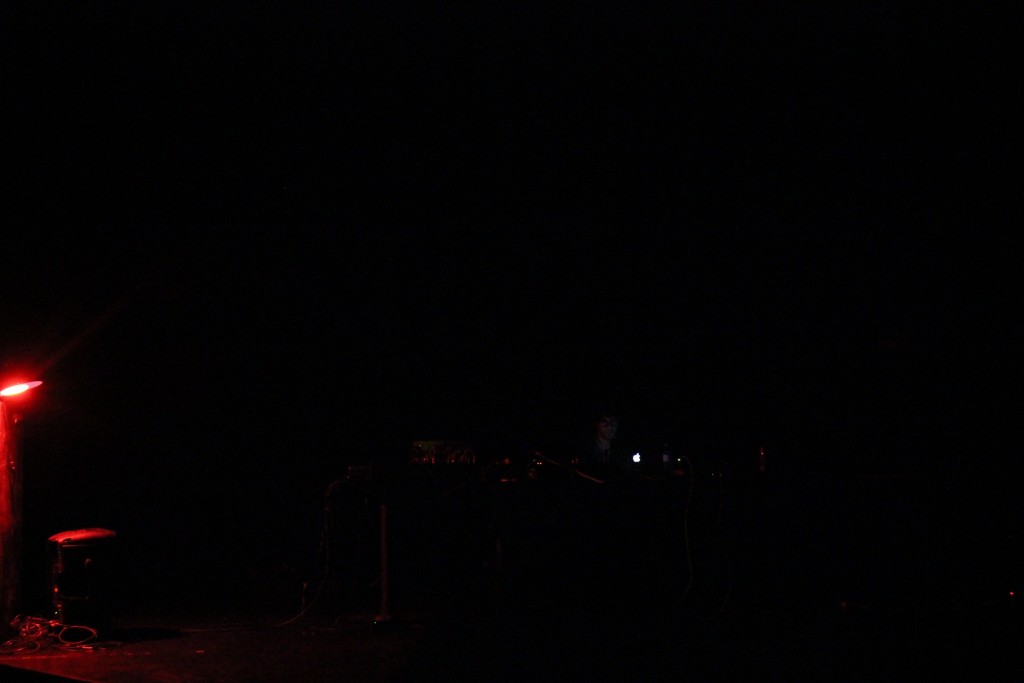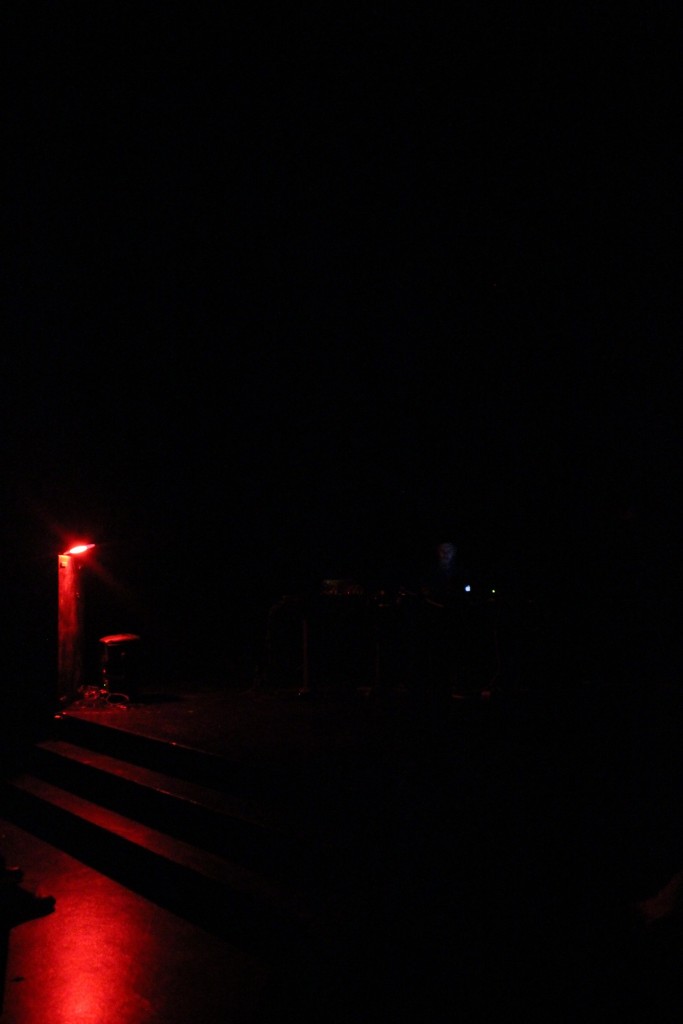It was anything but quiet. Arriving early to the Revue Stage on Granville Island for the 31st instalment of Quiet City — one of the first shows at Red Gate Arts Society’s newest venture — everything pointed towards a relaxed, introspective, and moderately low-volumed evening. The venue was dimly lit, with soft red and green lights on stage; the rows of velvet lined seats were comfortable and spacious; relaxed conversation from the handful of overly punctual audience members floated by on the warm air.

As the seats began to fill up around me, the curator, host and mastermind behind the Quiet City concert series, Constantine Katsiris, stepped onstage to announce that complimentary earplugs were available at the bar. Confused, I decided to be safe and grab a pair just before the music began.
Rusalka, the electronic noise project of Vancouver’s Kate Rissiek, started the night. Kneeling in absolute darkness near the front of the stage behind a theremin and a profusion of electronics and effects pedals, Rissiek slowly unleashed an aggressive wave of deep, rumbling bass. Quickly slipping the complimentary earplugs in, I sat back and let the ever morphing drone wash over me, shaking me to the core.
After Rusalka’s set, my body still tingling from the intense vibrations it had just withstood, Montreal sound artist Christian Carrière stepped on stage. Performing with a no-input mixer, Carrière seemed to be performing on a similar wavelength as Rusalka. The unrelenting wash of bone-rattling bass was more physical than auditory. As the torrent continued, the timbre transformed. Compared to the harsh, almost violent atmosphere of Rusalka’s set, Carrière’s sound seemed almost meditative. Massaged by the bass, I found the auditory experience become almost secondary to the introspective atmosphere the sounds created.

Cameron Shafii played next. Before I had time to remove my earplugs for a brief respite from my muffled world, the San Francisco-based experimental producer began. Again, a similar wave of near-subsonic frequencies enveloped the theatre. This time, instead of Carrière and Rusalka’s slow and subtle sonic manipulation, Shafii punctuated his drone with sporadic electronic glitches and bursts of feedback. Sounding like the internet collapsing in on itself, Shafii’s generative set was by far the most diverse — and lively — performance of the evening.

Following a brief intermission, the prolific and experimental Kevin Drumm took to the stage. Aware only of his earlier music on prepared guitar, I was surprised to see the Chicago musician step behind a laptop and a table of knobs and cables to perform an electroacoustic set. Again, it was low and it was loud. Feeling my eyeballs vibrate under the barrage, I was reminded of the first two sets of the evening. Drumm’s bass shook the theatre, as he gradually altered the sound, letting only the deepest of listeners in on the subtle sonic shifts.
Brandon Nickell closed the night, and to be quite honest, a fifth act was a stretch. As rewarding and intricate the music had been, I found myself weary from relentless bass. After four sets and over two hours of visceral low-frequency vibration, I couldn’t physically take any more. So when Nickell’s set began and the bass swelled, I had to leave early.
Stepping out of the theatre into the deserted Granville Island street, I removed my earplugs. The incessant hiss of the city’s ambience flooded my ears, and finally, it was quiet.


